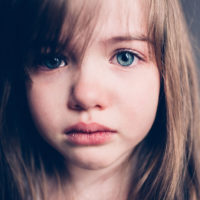Search results
-

CAMH Editorial: Volume 24, Issue 4, November 2019
I would like you, our readers, to think of CAMH whenever you need clinical advice, a research update, or an innovative service development idea.
Read more -

Homelessness and its impact on children
In the run up to Christmas, this article aims to outline previous research on the effects of homelessness and the potential solutions already outlined, as well as point towards future research and actions.
Read more -

In Conversation… Prof. Roz Shafran
Professor Roz Shafran covers a range of subjects on mental health, including looking at the work her and her team undertake at Great Ormond Street Hospital. This includes innovations such a mental health ‘booth’ for children and families. Roz also looks at the rise of dysfunctional perfectionism
Read more -

In Conversation… Eating Disorders with Dr. Dasha Nicholls
In this podcast, Dr. Dasha Nicholls talks about eating and feeding disorders in children and young people.
Read more -

In Conversation… Fetal Alcohol Spectrum Disorder (FASD)
Dr. Jennifer Shields & Dr. Sarah Brown discuss Fetal Alcohol Spectrum Disorder (FASD), the most common preventable non-genetic cause of neurodevelopmental disorders in the UK.
Read more -

Congratulations to Professor Tamsin Ford CBE
We are delighted for ACAMH Board member, Professor Tamsin Ford who has been awarded a CBE for services to psychiatry.
Read more -

In Conversation… Digital Interventions with Dr. Bethan Davies & Dr. Aislinn Bergin
In this podcast on Digital Interventions, Dr. Bethan Davies & Dr. Aislinn Bergin, of NIRH Mindtech, talk to freelance journalist Jo Carlowe about how these innovations can have a positive effect on young people’s mental health.
Read more -

Children’s Understanding of Depression
Depression is a mental illness that affects children and especially adolescents, however little is known about how children and adolescents understand depression. Gaining an understanding of how children perceive illness can facilitate effective communication with health professionals and children’s active involvement in decision-making about their health.
Read more -

CAMH Editorial: Volume 24, Issue 2, May 2019
Editorial: Debates in scientific practice
Read more
What is the purpose of debates? -

In conversation… Professor Andrea Danese discusses Trauma
Andrea discusses the impact trauma has on the child, the Topic Guide on Trauma he wrote with Dr Patrick Smith for ACAMH. He also talks about the recent paper in The Lancet ‘The epidemiology of trauma and post-traumatic stress disorder in a representative cohort of young people in England and Wales’ Lewis, S J et al, and its findings.
Read more